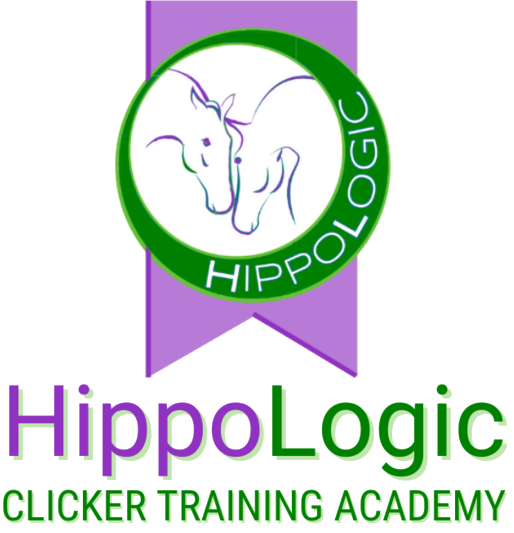The HippoLogic Key Lessons are your Keys to Success in Horse Training.
Sandra has studied many successful horse trainers, animal trainers as well as successful business people, speakers and other successful people. She found what they had in common and added ideas of her own, based on her 25+ years of experience in teaching horse people to ride and train their horses safely.
Those became the foundation lessons that she tested extensively with her clients. She called them the Key Lessons because these are all necessary in order to become a successful horse (or animal) trainer.
These Key Lessons consist of basic behaviours the horse must master and skills the trainer must master. Together they form a strategy that always lead to success in training.
Once you have a strategy, a roadmap, you’ll notice that the outcomes of training become fairly predictable and can also be duplicated with other horses and in other circumstances. That’s how they are tested. Everyone can learn those and everyone can become successful in training their own horse.
Key Lessons for Horses and their purpose
- Key Lesson Table Manners
Teaching your horse food etiquette. It includes safe hand-feeding and safe behaviour around food and food reinforcers - Key Lesson Patience
Creates calm and attentive horses. Horses that wait patiently for cues without turning your into attention-seeking monsters. - Key Lesson Targeting
Teaching your horse to touch a particular object with a certain body part. Once they understand how to target, it can be used as training tool to teach other – and very complex- behaviours. - Key Lesson Mat training
Teaching your horse to stand on a mat. This is Targeting with their front feet. Like targeting this can become one of your most powerful training tool in your training tool box. - Key Lesson Head lowering
Calming behaviour as well as practical purposes. Best basic to improve husbandry skills. - Key Lesson Backing
Improves safety in almost all daily activities. Backing also can improve your horse’s agility and strength.
Key Lessons for Trainers and their purpose
Key Lesson for Trainers– modules will be added later. Here is a quick summary of these Keys to Success:
- Key Lesson Principles of Learning and Motivation.
If you know how learning occurs and how you can stimulate learning you have a powerful tool in hands. Learning and motivation go hand in hand. If you can figure out what motivates a certain behaviour you have the key in hands to either increase that behaviour if it’s desired behaviour or how to decrease it, if it’s undesired behaviour. - Key Lesson Training plan.
If you have a goal, you can make a plan. Studies have proven that with a plan you’re way more likely to succeed than without one. - Key Lesson Shaping plan.
A shaping is a written manual for training a particular behaviour and it includes all steps that are needed to train that behaviour. The more steps it includes the better it is. By writing it out before you start, you’re prepared well and this will prevent frustration in horse and in you. - Key Lesson Training journal.
Only when you monitor what your doing and what brought you success and what pitfalls you discover, you can grow and learn fast. Writing your results down will also make yourself conscious about what you did and how you did it. With a good training journal you have a powerful tool in hands to duplicate your training successes. For training your own horse as well as all future horses you will train. - Key Lesson Accountability.
We all need support and accountability in order to accomplish our goals. If you have someone that knows about your goals and asks you on a regular basis how you’re doing and if you need help, it will speed up your results. This is proved in numerous scientific research. - Key Lesson Emotions in Training.
Emotions, we all have them and also our horse’s behaviour is driven by them. The better we recognize emotions the better we can deal with them in training. Not only the positive ones but also the negative ones. It’s key to know what triggers frustration, anger, aggression, curiosity, fear, play and so on in our horses. The more knowledge you have the better you can prevent the ones that inhibit learning (like fear) and make training more effective.


